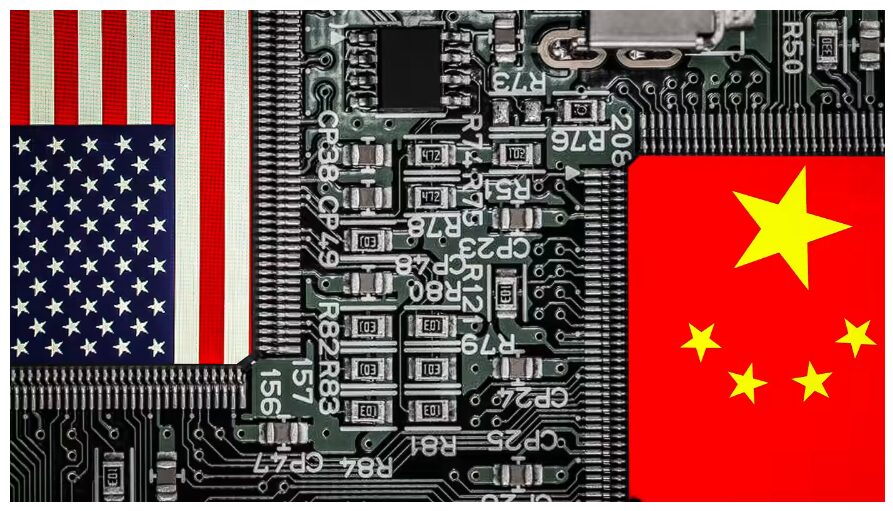Sajjad Ashraf, Former Adjunct Professor, National University of Singapore
Oct 25, 2024
The withdrawal of the Philippine coast guard cutter BRP Teresa Magbanua from Sabina Shoal highlights rising tensions in the South China Sea, where China and the Philippines assert conflicting territorial claims. While it opens the door for potential diplomacy, the incident also underscores the Philippines' growing alignment with the U.S. amid concerns of becoming collateral damage in broader geopolitical rivalries.

Zhou Yiqi, Associate Fellow, Center for West Asian & African Studies, Shanghai Institutes for International Studies
Oct 18, 2024
China’s efforts to mediate between various Palestinian groups is a first step toward bridging the divide between Palestine and Israel. The U.S. must also take ownership of its responsibility and similarly employ its significant influence over Israel.
Li Yan, Director of President's Office, China Institutes of Contemporary International Relations
Oct 08, 2024
The institutionalized quadrilateral dialogue is now a leading alliance network of the U.S., alongside its bilateral alliances in the Asia Pacific. But there are differences within the Quad that are larger with regard to global hot spots such as the Ukraine crisis and the Palestinian-Israeli conflict.
Xiao Bin, Deputy Secretary-general, Center for Shanghai Cooperation Organization Studies, Chinese Association of Social Sciences
Oct 08, 2024
For the Ukrainian president to consummate his victory plan he must either wait for or create favorable external conditions. The plan is closely intertwined with the evolving dynamics of relations between China, the United States and Russia.

Warwick Powell, Adjunct Professor at Queensland University of Technology, Senior Fellow at Beijing Taihe Institute
Oct 04, 2024
By insisting on protocols that enable cross-national interoperability in a world that lacks trust, the concept aims to break the grip of a handful of American tech giants while offering a chance for open-source systems to reestablish the sovereignty of all.
Richard Javad Heydarian, Professorial Chairholder in Geopolitics, Polytechnic University of the Philippines
Sep 30, 2024
President Joe Biden recently hosted Quad leaders to celebrate their cooperation while raising concerns about rising tensions with China. Despite initiatives aimed at countering China's influence, India's growing assertiveness may lead it to distance itself from the Quad, creating uncertainties about the alliance's future amid shifting geopolitical dynamics.

Sep 30, 2024
Derek Grossman is a senior defense analyst at RAND focused on a range of national security policy and Indo-Pacific security issues. He closely tracks intensifying U.S.-China competition throughout the region, including Asia and Oceania. Grossman was interviewed recently by Wang Zhijin, a reporter for China-US Focus, at the recent Xiangshan Forum in Beijing.
Peng Nian, Director of Research Centre for Asian Studies, China
Sep 27, 2024
Cooperation on artificial intelligence has emerged as an area with high potential for China-U.S. relations. It would have a lasting impact. Therefore, both sides should take more effective measures to promote it and generate positive energy.
Li Yan, Director of President's Office, China Institutes of Contemporary International Relations
Sep 27, 2024
When a major country moves unilaterally to increase its own security, it triggers a greater sense of insecurity in others. The recent move by the United States to adjust its nuclear response strategy is having exactly that effect, along with a return of Cold War thinking.
Niu Xinchun, Professor, China-Arab Research Institute, Ningxia University
Sep 21, 2024
The United States plays the role of “necessary devil” in the Middle East, yet it is still valued as a key ally by Arab nations and Israel. America’s unwavering support for Israel often draws a backlash from the Arab world. However, the Arabs’ moral imperatives may clash with their strategic interests.
Back to Top

- China-US Focus builds trust and understanding between the U.S. and China through open dialogue among thought leaders.
- Our Offerings
- Topics
- Videos
- Podcasts
- Columnists
- Research Reports
- Focus Digest
- Stay Connected
-
Thanks for signing up!
- Get the latest stories from China-US Focus weekly.